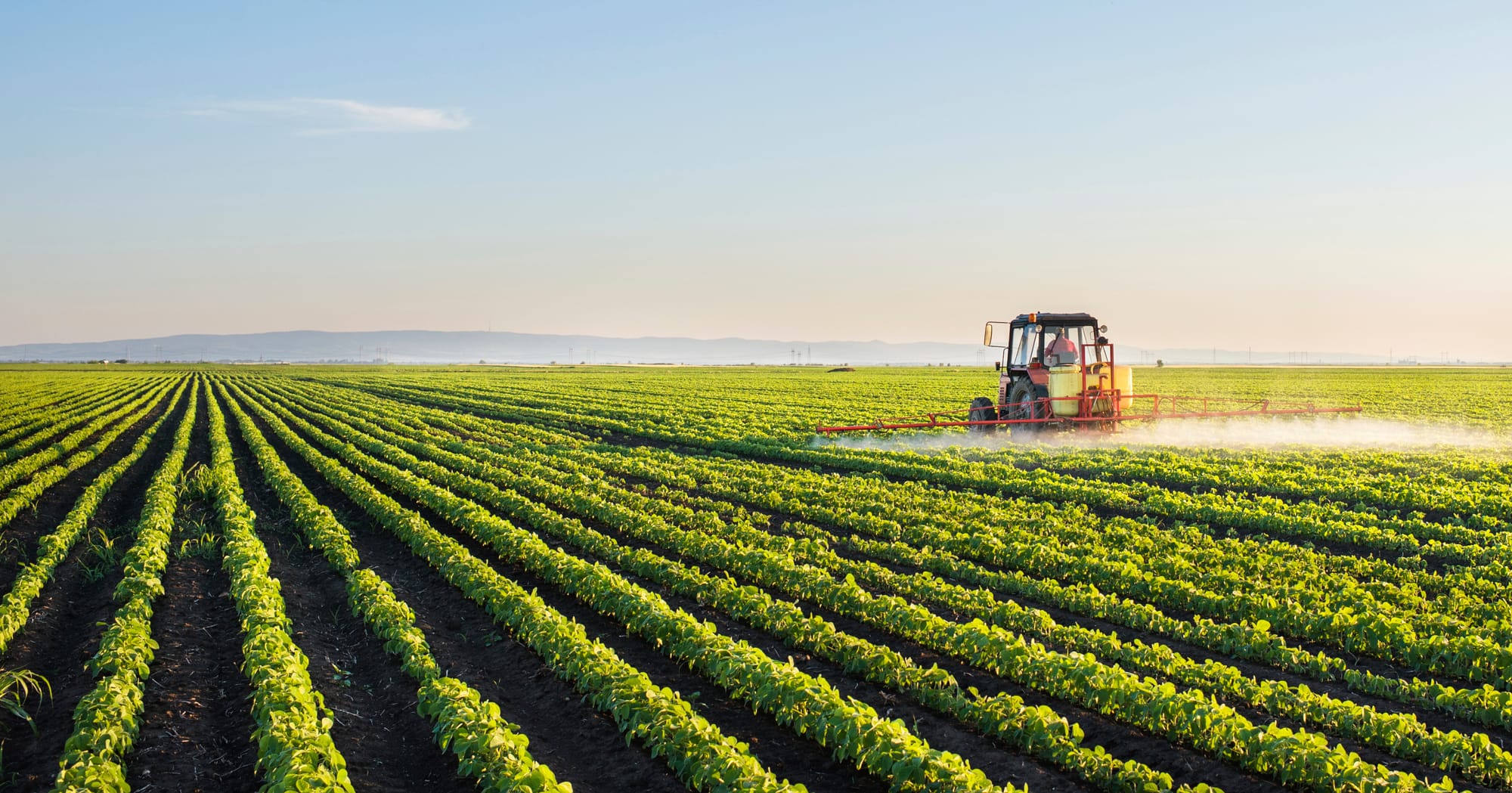Update 2: Graeme Sait’s European Adventure: Spreading the Power of Nutrition Farming®
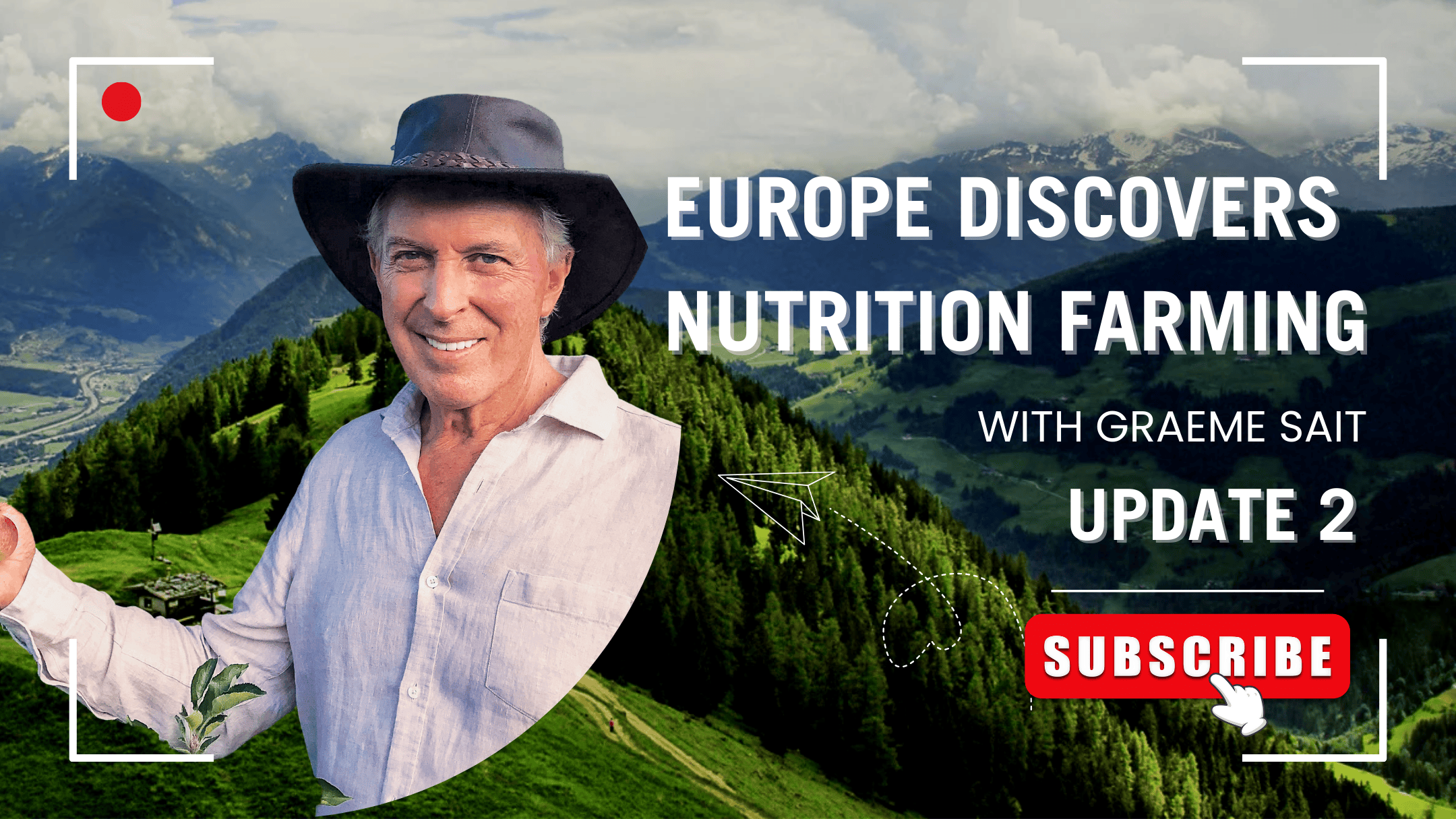
Hi Everyone,
Welcome back to my ongoing sharing of our seminar tour of Europe, where we are passionately promoting Nutrition Farming principles in several countries.
This past week featured the second leg of our journey to Portugal, and there has been one outstanding realization: Portuguese farmers are a rare breed. They are deeply connected to the earth, family, culture, and God. We resonated immediately with their values and were grateful for the warmth and welcome we experienced everywhere.
It was a pleasure to conduct extended courses on-farm, where we could alternate theory and practical application each day. This week we were hosted by a trio of passionate soil warriors who recently formed a training organisation called Academia do Solo (Soil Academy). João Grave, Miguel Carvelho, and João Coimbra form the dynamic partnership intent on driving change. I was honoured to be the first international speaker to help them further this noble cause.
After a fond farewell from the team at Vivid Farms, we headed to the Soil Academy event with a weekend stopover at the family wine estate of João Grave. En route, we visited a field full of ancient monoliths called the Almendres Cromlech, created by locals some 7000 years ago. These geometrically aligned stones track constellations and solstices and are of deep spiritual significance. Unfortunately, modern regulations now restrict visitors to outside the circles to protect underlying plant life. I must admit, I did briefly step into the circle for a moment of connection — though I may have incurred a few disapproving glares in the process.
João's family estate is situated near the city of Évora, famous for its old city centre enclosed by Roman walls and adorned with spectacular churches and an ancient temple. We dined at a renowned restaurant serving classic Portuguese cuisine, accompanied by Pêra-Grave wines from João’s father’s vineyard. Later, we were treated to remarkable stories and videos of João’s experiences as leader of an 8-man forcados bullfighting team — an intense sport involving seizing the bull by the horns and wrestling it to the ground. João still bears the scars of his brave role.
The estate, Quinta de São José de Peramanca, is home to these wines. The granite mantle upon which the vineyard sits defines its unique terroir. The name peramanca refers to the oscillating, monolith-like rocks common in the region — the largest of which can be found on this very property.

While in Portugal, we observed many people mourning the recent passing of Pope Francis at Fátima, a Catholic pilgrimage site. I was deeply moved by some of his quotes. Claudia, raised Catholic, was thrilled to attend Mass and take communion at the cathedral.

On João’s estate, he has embraced multi-species cover cropping between vineyard rows and implemented Nutrition Farming strategies to improve crop resilience and reduce chemical inputs. For example, powdery mildew is being managed with a foliar of milk powder at 2 kg/ha plus 10 L of BAM in 500 L water. Downy mildew is best addressed with potassium phosphonate and fulvic acid. We carried out sap and microbial testing on site, uncovering a lack of effective nodulation in legumes — no red-pigmented leghemoglobin — and a need to increase calcium and fungal activity in the soil.

We then travelled to João Coimbra’s broadacre farm, where a three-day course was held. João is a powerhouse — passionate, informed, and deeply committed to regenerative principles, with a five-person research team quantifying all trials across his 3000-acre property.
One highlight was his compost extractor, where he combines vermicompost, aerobic compost, and untouched native soil from an unfarmed area to achieve maximum microbial biodiversity. He is also trialling Johnson/Su composting techniques. We discovered that his open-netting cages weren’t retaining moisture as well as enclosed bins wrapped in landscaping fabric. Maintaining 70% moisture is key to this method, and mini-sprinklers outperformed drippers for hydration consistency.

João also demonstrated his dual-drum roller crimper, designed to terminate cover crops before planting. While effective on broadleaves, it still requires improvement for terminating grasses — a crucial step toward replacing glyphosate in no-till farming.

His seeders are equipped for direct microbial injection — applying brews of EM and worm extracts directly in-furrow, along with trace minerals and biostimulants.

An impressive addition to his farm is a $50,000 commercial bioreactor, typically found in microbial manufacturing facilities. It allows for clean aerobic inoculum replication and could pay for itself in its first year.

The final day of our visit included an on-farm consultation with João, his family, and the Soil Academy team. We reviewed multiple soil and leaf analyses and conducted live microbial assessments. This citizen science approach is both admirable and effective. With plans to establish a teaching institute, this farm will likely become a national asset under João’s stewardship.

A touching ritual on the property involves planting a tree for each family member, including past and present workers. João’s father’s tree stands on a small island in the central pond. Claudia and I had the honour of planting a tree for the newest family baby.

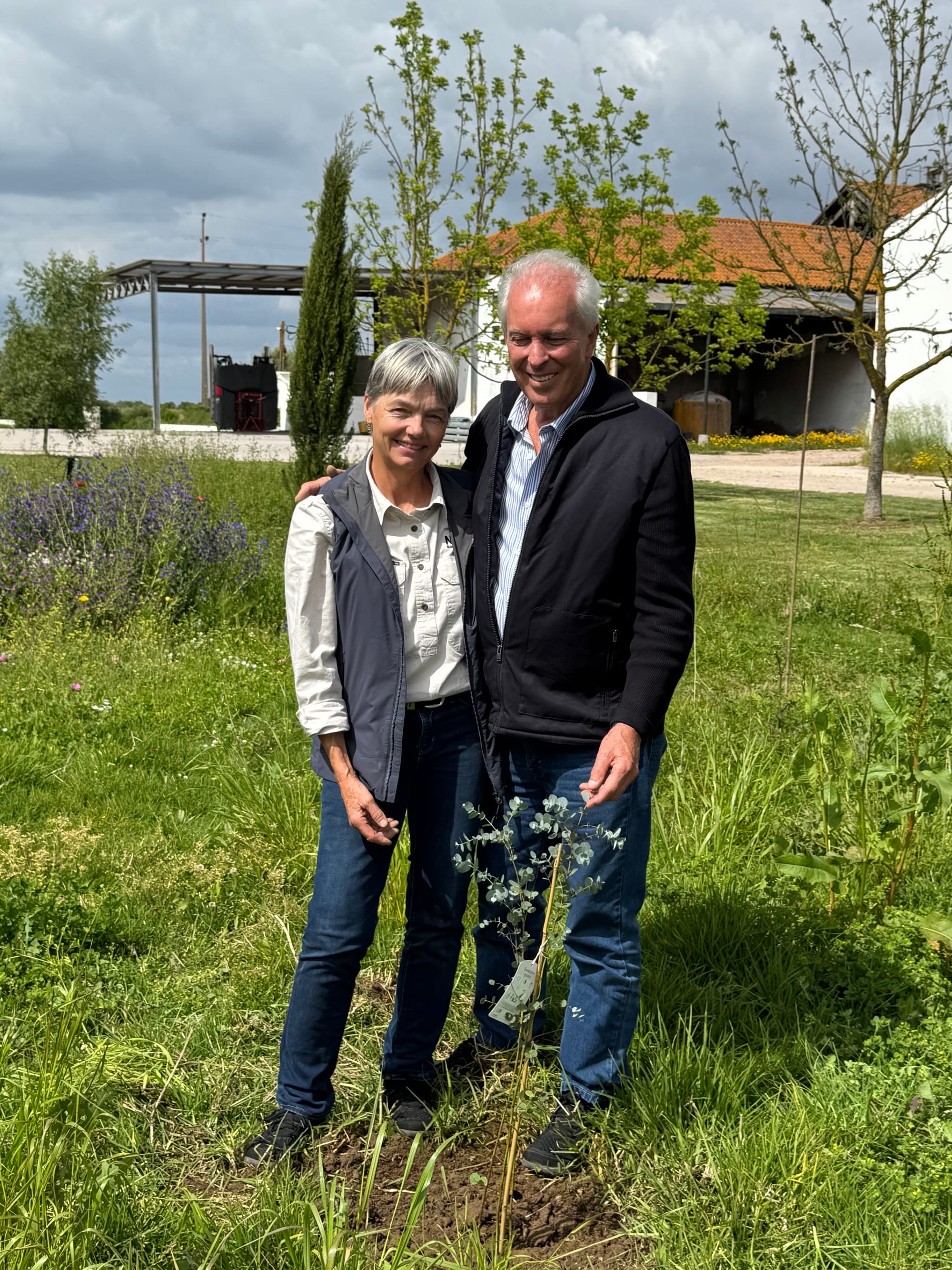
It was hard to leave Portugal. The innovation, passion, and sincerity of these farmers left a lasting impression on us. We flew to Holland with full hearts and a little sadness. The midday wine may have left us too — replaced by coffee and water. Perhaps we’ll start AA sessions after the tour...
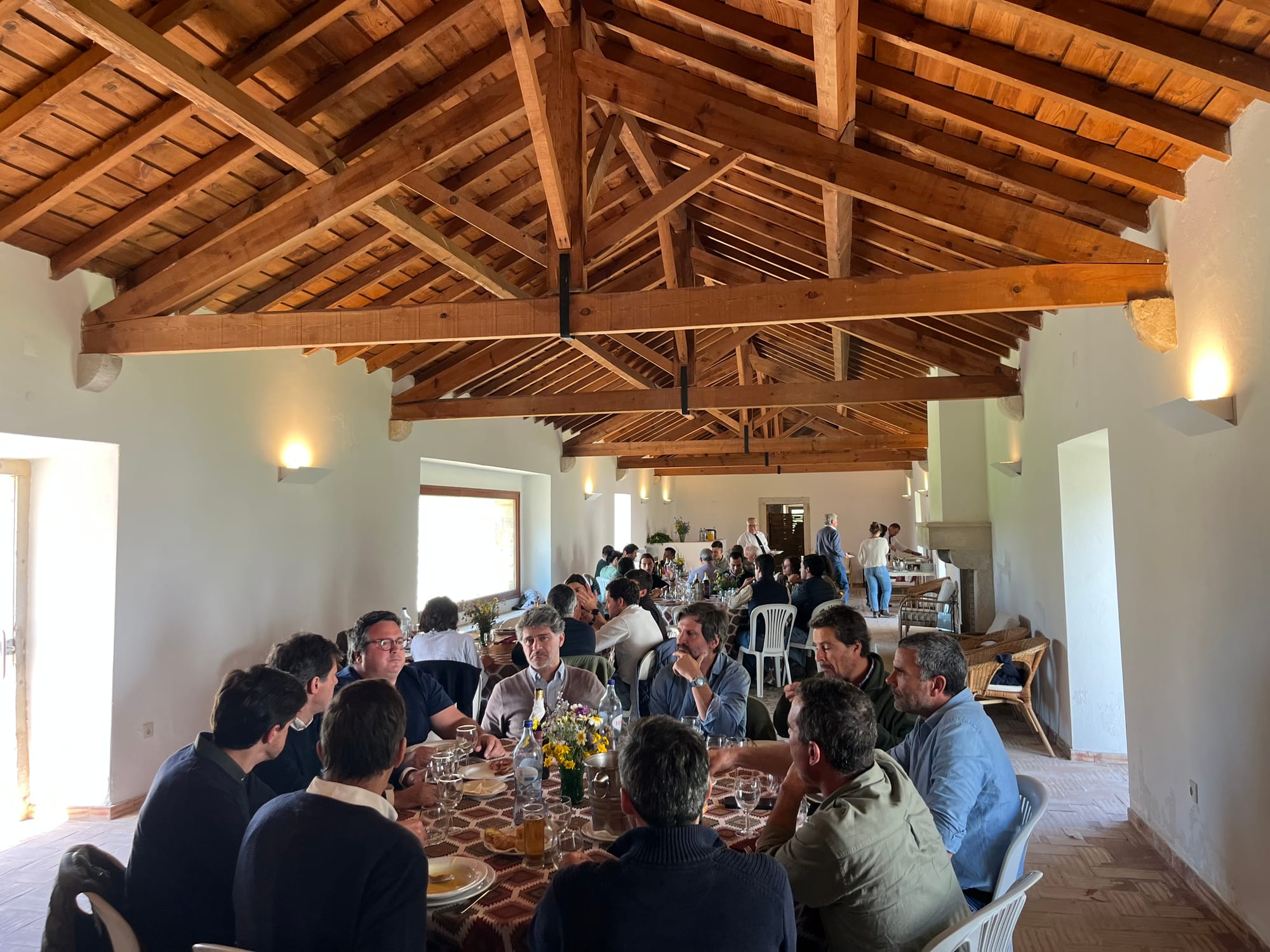
One of the most engaging parts of the “How to Do It” day was the rainbow sauerkraut demonstration. Claudia prepared the 12 ingredients while I explained the function and benefits of each. The principle of “make every plate a rainbow” relates to the protective antioxidant pigments in colourful foods. When fermented, the bioavailability of nutrients can increase by up to 500%, making this dish both a celebration and a superfood.

Next week, I’ll share our journey to Holland, where we taught at the headquarters of Nova Crop, the world's leading plant sap testing laboratory.
Happy Nutrition Farming, and may the summer treat you well.
Warm regards,
Graeme
For more details about the European Tour:
Some event details are yet to be confirmed, so check back for updates.
Certificate in Nutrition Farming
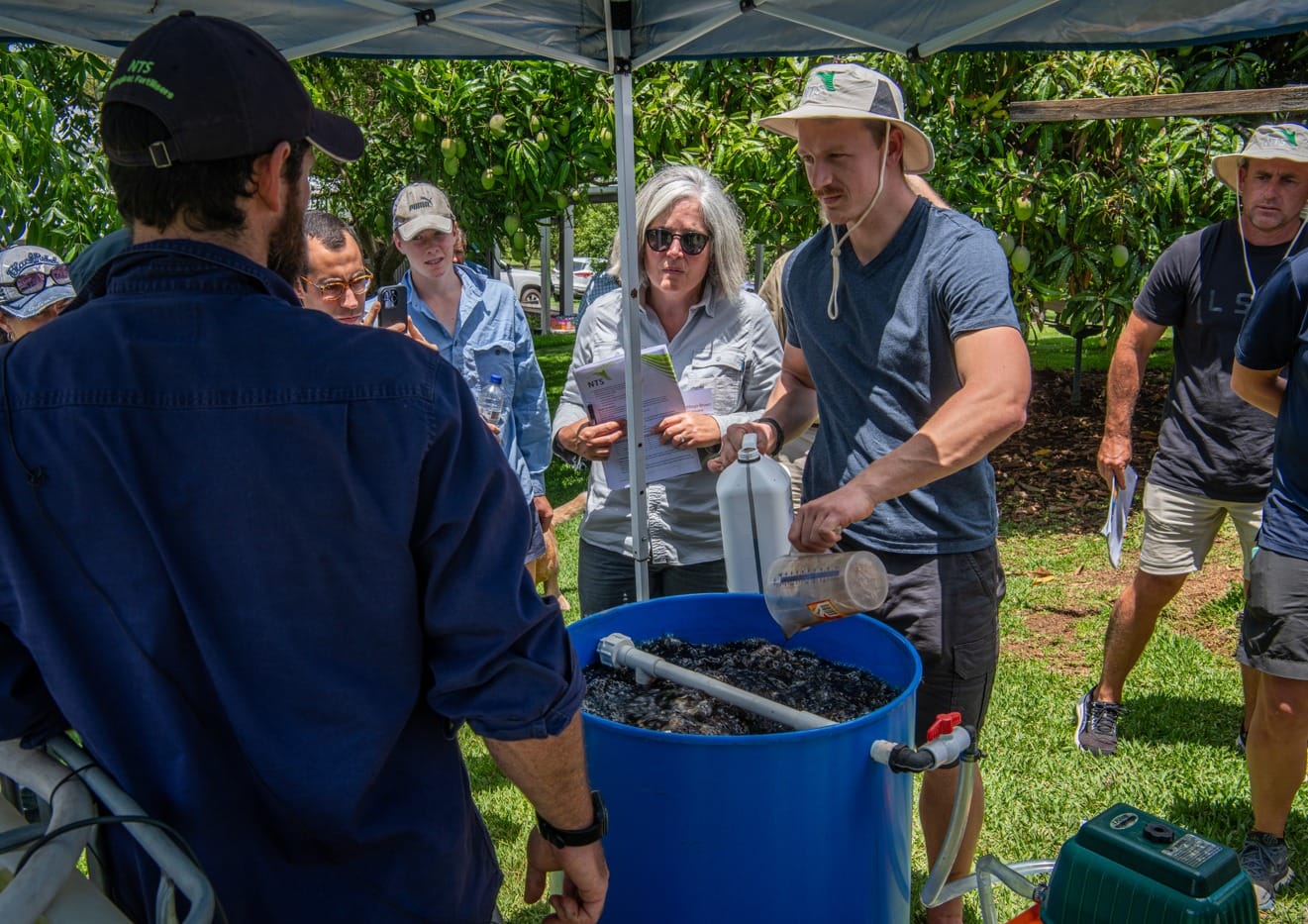
Our next iconic, five-day Certificate in Nutrition Farming® course is scheduled for July, Monday 21st - Friday 25th July 2025.
Our last course was attended by growers and consultants from six countries. It was a wonderful learning opportunity where attendees enjoyed a wealth of education and inspiration from both our presenters and their fellow attendees. We only accept 40 bookings for these courses, so please register if you would like to attend.
